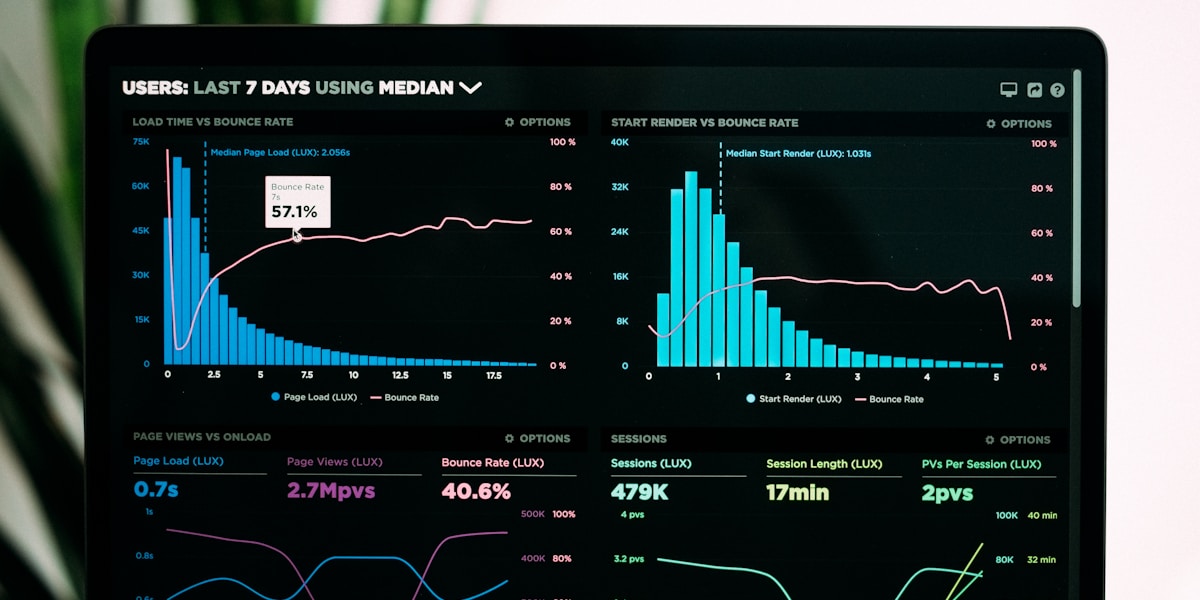Note: Rapitek is now an independent CRM provider. While we have extensive Salesforce experience from 200+ implementations as a former partner, we now offer Rapitek CRM - our own platform built from this experience. Learn more about Rapitek CRM
In today's rapidly evolving digital landscape, businesses face unprecedented challenges in connecting with their customers across multiple touchpoints. The modern consumer expects personalized, relevant experiences at every stage of their journey, from initial awareness to post-purchase engagement. This is where Salesforce Marketing Cloud emerges as a game-changing solution, offering a comprehensive suite of digital marketing tools designed to create meaningful, data-driven customer relationships.
As organizations strive to cut through the noise of an increasingly crowded marketplace, the ability to deliver the right message to the right person at the right time has become more critical than ever. Salesforce Marketing Cloud addresses this challenge by providing marketers with sophisticated automation capabilities, advanced analytics, and seamless integration across all marketing channels. From small businesses looking to scale their marketing efforts to enterprise organizations managing complex, multi-channel campaigns, this platform offers the flexibility and power needed to drive measurable results.
Throughout this comprehensive exploration, we'll delve into the core components that make Salesforce Marketing Cloud a leader in the marketing automation space. We'll examine how tools like Journey Builder revolutionize customer experience design, how Email Studio transforms traditional email marketing, and how the platform's data-driven approach enables businesses to make informed decisions that directly impact their bottom line. Whether you're a marketing professional seeking to enhance your current strategies or a business leader evaluating marketing technology investments, this deep dive will provide valuable insights into maximizing your marketing potential.
Understanding Salesforce Marketing Cloud's Core Architecture
Salesforce Marketing Cloud operates on a sophisticated, cloud-based architecture that seamlessly integrates multiple marketing channels and data sources into a unified platform. At its foundation, the system leverages customer data platform (CDP) capabilities that aggregate and unify customer information from various touchpoints, creating comprehensive customer profiles that inform every marketing decision.

Data Integration and Management
The platform's data management capabilities extend far beyond simple contact storage. Marketing Cloud's Contact Builder creates a single source of truth for customer data, automatically synchronizing information across all connected systems. This unified approach ensures that every customer interaction is informed by complete, up-to-date information, eliminating the data silos that often plague marketing operations.
Advanced segmentation tools allow marketers to create highly specific audience groups based on behavioral patterns, demographic information, purchase history, and engagement metrics. These dynamic segments automatically update as customer data changes, ensuring that marketing campaigns always target the most relevant audiences with precision accuracy.
Multi-Channel Integration
One of Marketing Cloud's most powerful features is its ability to orchestrate campaigns across multiple channels simultaneously. The platform natively supports email, SMS, push notifications, social media advertising, and web personalization, allowing marketers to create cohesive customer experiences regardless of where interactions occur. This omnichannel approach ensures consistent messaging and branding while maximizing touchpoint effectiveness.
Journey Builder: Revolutionizing Customer Experience Design
Journey Builder represents perhaps the most innovative aspect of Salesforce Marketing Cloud, transforming how businesses conceptualize and execute customer engagement strategies. This visual, drag-and-drop tool enables marketers to design complex, automated customer journeys that respond dynamically to individual behaviors and preferences.
Automated Customer Pathways
Traditional marketing approaches often rely on static, one-size-fits-all campaigns that fail to account for individual customer preferences and behaviors. Journey Builder eliminates this limitation by creating intelligent pathways that adapt based on real-time customer actions. For example, a customer who abandons their shopping cart might automatically enter a re-engagement sequence, while a loyal customer making a repeat purchase could be directed toward a loyalty program enrollment journey.
"Journey Builder has transformed our customer engagement strategy, allowing us to increase conversion rates by 340% through personalized, automated touchpoints that respond to individual customer behaviors in real-time."
Advanced Trigger Mechanisms
The platform supports sophisticated trigger mechanisms that can initiate customer journeys based on a wide variety of criteria. These triggers include behavioral actions (website visits, email opens, purchase completions), demographic changes (birthday, location updates), engagement milestones (subscription anniversaries, loyalty tier achievements), and external data inputs (weather conditions, stock levels, seasonal events).
Machine learning capabilities within Journey Builder continuously optimize path selection and timing, analyzing historical performance data to predict the most effective next steps for individual customers. This predictive intelligence ensures that each customer receives the most relevant content at the optimal moment for engagement.

Email Studio: Advanced Email Marketing Capabilities
While email marketing remains a cornerstone of digital marketing strategies, Email Studio elevates this traditional channel through advanced automation, personalization, and optimization capabilities. The platform transforms basic email campaigns into sophisticated, data-driven communications that drive measurable business results.
Dynamic Content and Personalization
Email Studio's dynamic content capabilities enable marketers to create single email templates that automatically customize content based on recipient characteristics and behaviors. This approach significantly reduces campaign creation time while dramatically improving relevance and engagement rates. Advanced personalization extends beyond simple name insertion to include product recommendations, location-specific offers, and behavioral triggers that create truly individualized experiences.
The platform's Content Builder provides a centralized repository for email assets, enabling teams to maintain brand consistency while streamlining content creation processes. Drag-and-drop editors, pre-built templates, and approval workflows ensure that even complex email campaigns can be developed and deployed efficiently.
Deliverability and Performance Optimization
Email Studio incorporates sophisticated deliverability tools that monitor sender reputation, optimize send times, and automatically manage bounce handling and unsubscribe processes. Advanced A/B testing capabilities enable marketers to optimize subject lines, content variations, and send times based on statistically significant performance data.
Real-time analytics provide detailed insights into email performance, including open rates, click-through rates, conversion tracking, and revenue attribution. These metrics integrate seamlessly with broader Marketing Cloud analytics, providing complete visibility into email's contribution to overall marketing performance.
Data-Driven Decision Making and Analytics
The true power of Salesforce Marketing Cloud lies in its comprehensive analytics and reporting capabilities, which transform raw marketing data into actionable business intelligence. The platform's Analytics Builder provides marketers with unprecedented visibility into campaign performance, customer behavior, and ROI metrics.
Advanced Reporting and Insights
Marketing Cloud's reporting suite goes far beyond basic campaign metrics to provide deep insights into customer lifetime value, attribution modeling, and predictive analytics. Customizable dashboards enable teams to monitor key performance indicators in real-time, while automated reporting ensures that stakeholders receive regular updates on marketing performance.
The platform's integration with Salesforce's broader ecosystem, including Sales Cloud and Service Cloud, provides complete customer journey visibility. This holistic view enables marketers to understand how their efforts contribute to sales outcomes and customer satisfaction metrics, demonstrating clear ROI and informing future strategy decisions.

Artificial Intelligence and Machine Learning
Salesforce's Einstein AI capabilities are deeply integrated throughout Marketing Cloud, providing predictive insights that enhance every aspect of marketing operations. Einstein Engagement Scoring predicts individual customer engagement likelihood, while Einstein Send Time Optimization automatically determines the best time to reach each customer based on their historical engagement patterns.
These AI-powered features continuously learn from customer interactions, automatically improving campaign performance over time without requiring manual intervention. This intelligent automation enables marketing teams to focus on strategy and creative development while the platform handles optimization and personalization at scale.
Implementation and Best Practices
Successfully implementing Salesforce Marketing Cloud requires careful planning, strategic thinking, and adherence to proven best practices. Organizations that approach implementation systematically typically achieve faster time-to-value and better long-term results.
Strategic Planning and Setup
Effective Marketing Cloud implementation begins with clearly defined business objectives and success metrics. Organizations should conduct thorough audits of existing marketing processes, data sources, and technology integrations to ensure smooth platform adoption. Proper data migration and integration planning prevents common implementation challenges and ensures that historical customer information remains accessible.
Change management considerations are equally important, as Marketing Cloud often represents a significant shift in how marketing teams operate. Comprehensive training programs and ongoing support ensure that team members can fully leverage the platform's capabilities from day one.
For businesses seeking expert guidance in Marketing Cloud implementation and optimization, partnering with experienced Salesforce consultants can accelerate success and avoid common pitfalls. Professional implementation services ensure that the platform is configured to meet specific business requirements while following industry best practices.
Conclusion
Salesforce Marketing Cloud represents a transformative approach to digital marketing, offering businesses the tools and intelligence needed to create meaningful customer relationships at scale. Through its comprehensive suite of features—from Journey Builder's sophisticated automation capabilities to Email Studio's advanced personalization tools—the platform enables organizations to deliver the relevant, timely experiences that today's customers demand.
The platform's data-driven approach ensures that every marketing decision is informed by real customer insights, while AI-powered optimization continuously improves campaign performance without manual intervention. This combination of power and intelligence makes Marketing Cloud an invaluable asset for businesses serious about maximizing their marketing investment and driving sustainable growth.
As the digital marketing landscape continues to evolve, organizations that embrace comprehensive, integrated platforms like Salesforce Marketing Cloud will be best positioned to adapt to changing customer expectations and market conditions. The investment in advanced marketing technology pays dividends through improved customer engagement, increased conversion rates, and ultimately, stronger business performance.
Ready to explore how Salesforce Marketing Cloud can transform your marketing operations? Discover more insights about marketing automation best practices, or contact our team to discuss your specific marketing challenges and objectives. The future of customer engagement starts with the right technology foundation—and Marketing Cloud provides exactly that foundation for businesses ready to lead in the digital age.

